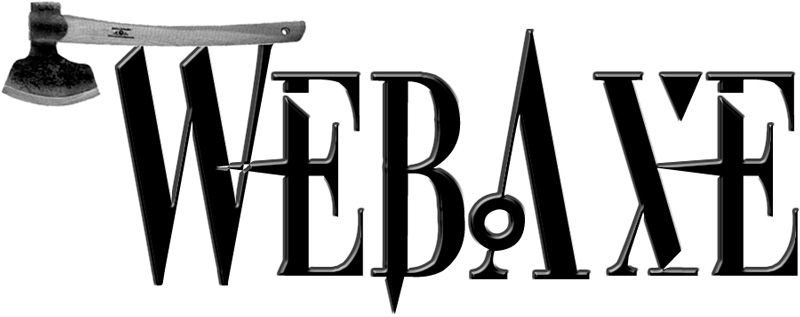In Boagword podcast #120 (June 4, 2008), Paul Boag speaks with Patrick Lauke on WCAG 2.0. It’s a lengthy discussion that’s definitely worth a listen.
Therese Nielsen, a veteran Web Axe podcast listener, has been a major contributor to the relaunch of the University of Michigan’s Services for Students With Disabilities web site earlier this year. The following is a portion of a message she sent:
I just wanted to let you know that listening to Web Axe helped me out a great deal as I created the site!…It has received a lot of really positive feedback, and a visually disabled student who is reviewing UM sites for accessibility recently raved about how much she likes using the site, calling it ‘wonderful’.
Thank you for the kind words Therese and congrats on the fine work!
This podcast covers the markup for Language, Abbreviations, and Quotes; CSS is a whole other issue which may be covered in a future podcast.
Download Web Axe Episode 64 (Language, Abbreviations, and Quotes)
News
- Update on the ADA (WebAIM)
- Web Accessibility. Life In the Post-Guideline Age
- Andrew Kirkpatrick’s slides for presentation “Webmaniacs Talk on Flex Accessibility”
- Easier YouTube from Chris Heilmann
- Flash now can be indexed by Google, etc.
Announcements
- Web accessibility consulting now offered by Dennis & Ross; contact them at webaxe [AT] gmail NOSPAM dot com
- The next Refresh Detroit meetup is Wednesday, July 30.
Main Segment
General Guidelines
- WCAG 1.0 Guideline 4. Clarify natural language usage
- WCAG 2.0 Guideline 3.1 Readable: Make text content readable and understandable
Language in HTML tag
Code Examples: Blockquote
Dennis and Ross are highly recommended for web design!
Jane DoeDennis and Ross are highly recommended for web design!
Code Examples: Inline quotes
A customer for web accessibility consulting said
Dennis and Ross are, and that was pleasing to my ears.
highly recommended for web design!Dennis and Ross are highly recommended for web design!
As Jane Doe said,Dennis and Ross are
highly recommended for web design!
Code Examples: Abbreviations & Acronym
CA
Cali
Also, the abbr attribute can be used in table headers:
CSS + Aural Style Sheets
acronym {speak : normal;}
abbr.initialism {speak : spell-out;}
abbr.truncation {speak : normal;}
Language Codes
List of language codes; the Representation of the Names of Languages. From ISO 639, revised 1989.
Other Links
- Block Quotes and Pull Quotes: Examples and Good Practices
- Quotations: The BLOCKQUOTE and Q elements (W3C)
Are we entering a Post-Guideline Age for web accessibility? It’s an interesting new argument being made in the article Web Accessibility. Life In the Post-Guideline Age from the E-Access blog.
I believe there is a good case for this:
- Too many different guidelines and laws.
- Too many different technologies are being developed.
- Just because a site passes web accessibility, doesn’t necessarily mean it’s usable (this is what the article focuses on).
Here’s a good excerpt from the article:
I think of this as a pyramid. Web accessibility is the foundation. Usability by disabled people is the next layer. And both of these underpin the ultimate goal: excellent user experiences by disabled people (and everyone).
The University of Colorado-Boulder is hosting the 11th Annual Accessing Higher Ground Accessible Media, Web and Technology Conference, November 11- 14, 2008.
The main topics include:
- implementation and benefits of Assistive Technology in the university and college setting
- legal and policy issues, including ADA and 508 compliance
- campus media and information resources, including Web pages, accessible
The web site describes the event as:
Disability Services at the University of Colorado at Boulder presents Accessing Higher Ground: Accessible Media, Web and Technology Conference for Education, for Businesses, for Web and Media Designers
